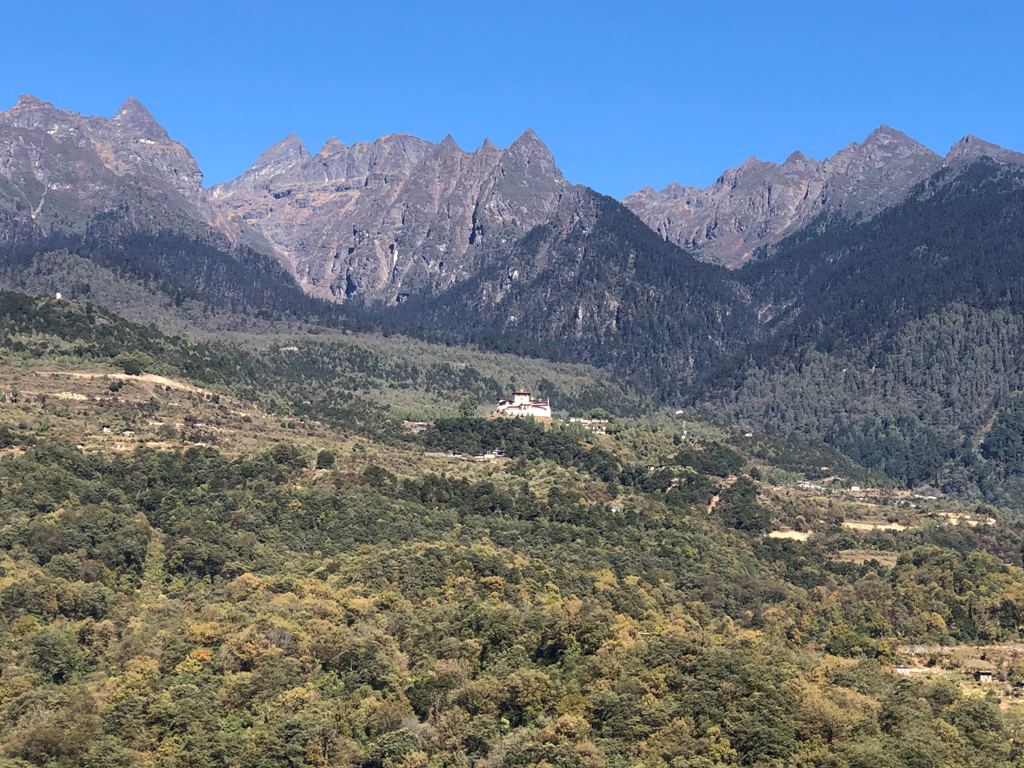
Gasa, literally translating to the land of happiness, is a strategically located northernmost district in the country, safeguarding the nation since time immemorial. The dzongkhag is known for its rich biodiversity and unique culture and tradition: making it one of the best tourist destinations.
Gasa is also famous for its hot springs in the country, frequently visited by thousands of people from all walks of life every year.
The dzongkhag has the most minuscule population, less than 4000 as per NSB, 2017 report. This hindered the development: received less share of the budget allocation through Resource Allocation Formula (RAF) with a population as one of the key criteria representing important development issues and needs of the LGs.
Compared to other dzongkhags, Gasa received the most negligible share of capital grants in the 12th Five Year Plan with only Nu. 665.365 million: Nu. 544.965 M was allocated through RAF and Nu. 120.400 M through CMI.
The multi-dimensional report published by NSB in 2017 indicated that Gasa is likely the poorest dzongkhag (29%) and Haa the next poorest dzongkhag (11%). Moreover, Gasa, Haa, Dagana and Samtse have a higher poverty level than the other 16 dzongkhags.
If the decisions are to be made based on the research and evidence, Gasa deserves the national priority, the government’s attention and the ministry’s support for the development of the district through flagship programs and other sources of funding.
As much as the MPs need to visit their constituency, understand the issues and reality on the ground, it is equally crucial for ministers to visit all dzongkhags, especially those with high poverty and least developed ones.
Gasa dzongkhag was so fortunate to welcome the first-ever female Health Minister, Her Excellency, Lyonpo Dechen Wangmo, as the first minister of the present government to have visited Gasa on April 7, 2019, to observe World Health Day accompanied by a representative from WHO, officials and specialists from the Health Ministry.
Followed by, His Excellency Lyonpo Jai Bir Rai, Education Minister, visit Gasa on September 12, 2019, while on a familiarization tour to schools of Gasa and Punakha.
His Excellency Lyonpo Namgay Tshering, Finance Minister, also visited Gasa on September 19, 2019. His Excellency shared the government’s key focus and rationalization of the government’s expenditure while meeting with dzongkhag officials.
Hon’ble Minister of MoWHS has made a Chopper trip to Lunana Gewog in mid-2019, but there were no official records.
I was less privileged as I could not be there to welcome the ministers. There was a lack of communication from the dzongkhag administration and the ruling MPs. However, I am very grateful for the ministers’ visits and for taking the time to understand the development status of the dzongkhag, work progress, and major issues.
Nevertheless, I had the great pleasure of welcoming the Hon’ble Prime Minister, Hon’ble Chairperson of the National Council and Hon’ble minister of MoWHS to Gasa during the Royal Highland Festival in October 2019.
The Minister of Agriculture and Forests, Hon’ble Lyonpo Yeshey Penjor, recently visited Gasa on April 22, 2020, and met sector heads, regional heads and LG leaders who were present to assess and advise on the preparatory measures undertaken by the dzongkhag relating to assurance and availability of essential items and commercial farming, amongst others.
Unless the minister takes an effort to make an impact where necessary, just a mere official visit and lip service will not suffice. They are the ministers first and representative of their constituency later. If ministers are using their ministerial power to divert the state budgets to fulfil their pledges in their respective constituency by ignoring the most deserving district, they are losing the whole purpose of national vision, and the government’s ideology narrowing the gap between the haves and have not.
Gasa may be small, but Article 12 (1 & 2) of the Constitution guarantees that it has two electoral votes/constituencies for any parties to form the government in the future.
Disclaimer: The views and opinions expressed in this article are those of the authors and do not
necessarily reflect the official position of the National Council of Bhutan.
Recent Blogs
- The Government cannot continue to be a party to UNCAC until Legal Anomaly is resolved July 8th, 2022
- Relevancy of Gaydrung amidst politics and RCSC reform May 2nd, 2022
- Concerns on the fuel price hike March 17th, 2022
- Effective Civil Service Reform in Bhutan November 25th, 2021
- Why didn’t I support the Tobacco Control (Amendment) Bill of Bhutan 2021? July 5th, 2021
Browse Category
- Gasa Issues (11)
- National Issues (14)
- Personal (3)
- Perspectives (7)
- Speeches (2)


